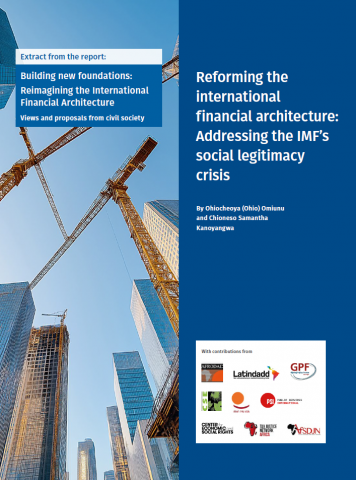
By Ohiocheoya (Ohio) Omiunu and Chioneso Samantha Kanoyangwa
This chapter critically examines the waning social legitimacy of the International Monetary Fund (IMF), focusing on its governance structure and role in the sovereign debt crisis. Despite growing calls for reform, the IMF has remained resistant to meaningful structural reforms, perpetuating an inequitable governance model dominated by a few wealthy nations. From the viewpoint that reforming the International Financial Architecture (IFA) also requires the reform of International Financial Institutions (IFIs), this imbalance marginalizes developing countries and undermines the IMF’s credibility as a fair global financial institution.
The chapter also highlights how the IMF’s continued reliance on austerity measures exacerbates economic hardships, particularly across several African countries that have recently defaulted or are currently experiencing debt distress, fuelling public scepticism and distrust. The IMF risks further erosion of its social legitimacy and continued irrelevance in global financial governance if it does not go beyond its minimalist approach to reforms.
